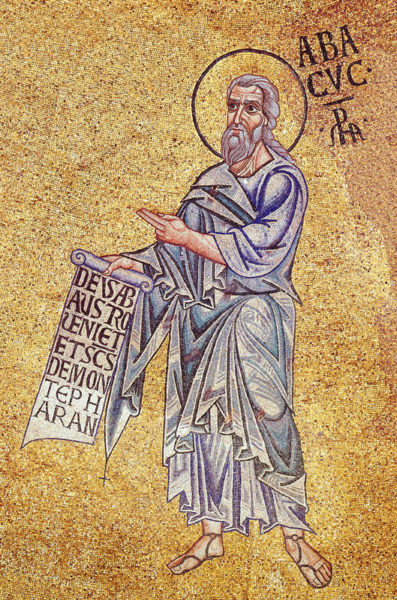 Habakkuk prophesied in Judah during the last half of the 7th century BC. He was one of the temple prophets — that is, his oracles were composed to be sung in temple worship; thus, they took the form of lamentations and canticles. Their liturgical character has persisted in out monastic office where the third chapter of his book is used as the fourth canticle of the traditional matins canon.
Habakkuk prophesied in Judah during the last half of the 7th century BC. He was one of the temple prophets — that is, his oracles were composed to be sung in temple worship; thus, they took the form of lamentations and canticles. Their liturgical character has persisted in out monastic office where the third chapter of his book is used as the fourth canticle of the traditional matins canon.
His writing is a compact resumè of truths central to the Hebrew faith: integrity of spirit us essential not only for the individual but for the nation as well; wealth is dangerous since it is the root of man’s desperate quest for security: the ruthlessness it produces, when taken on a national scale, is bound to fall back on its people. The history of Israel’s captivity and oppression has special meaning: in the perspective of faith, evil can never really be the ultimate victor. Trust in God is the only basis for strength, regardless of the external situation. (NS)